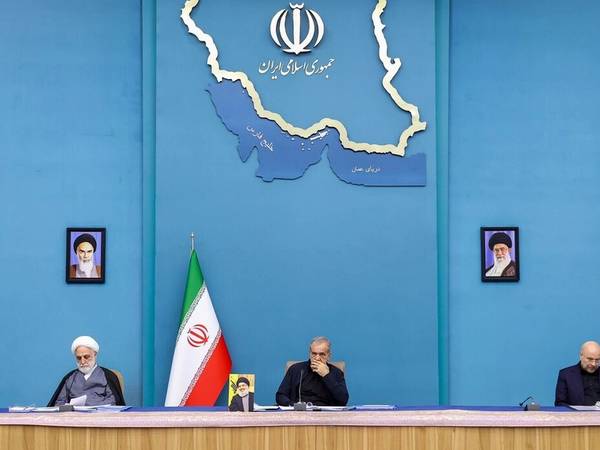Iran’s Supreme Council of Cyberspace on announced Tuesday it would lift restrictions on some digital platforms like WhatsApp and Google Play while maintaining control on others as Iranians continue to face some of the world's toughest internet restrictions.
"Following extensive deliberations, the members reached a unanimous consensus to lift restrictions on access to select widely utilized foreign platforms, including WhatsApp and Google Play, while underscoring the paramount importance of maintaining lawful governance in cyberspace," state-controlled IRNA news wrote.
The decision follows President Masoud Pezeshkian’s election pledge to improve access to foreign platforms, many of which are commercially critical for Iranians, especially those with small businesses.
However, while WhatsApp and Google Play restrictions are being lifted, Instagram, YouTube, and Telegram remain in limbo amid hardliner resistance.
The decision to unblock WhatsApp and Google Play still requires ratification by the office of Iran's Supreme Leader, Ali Khamenei, according to Abolhassan Firouzabadi, the former head of Iran's Supreme Council of Cyberspace, who spoke to state TV on Tuesday.
Iran's ruling clerical and military establishment have been wary of social media platforms as a vehicle for organizing protests, which have played out more on X and Telegram than the apps unshackled by the latest move.
Google Play would enable android phone users to download VPN apps to bypass government internet filtering.
The details of the lifting of restrictions have yet to be published, but the Mehr News agency which is close to the conservative establishment reported on a possible four-stage plan that might represent the actual framework discussed by the Council.
Stage one: Short-term measures
The outlet wrote that the first stage proposes immediate steps to ease access, such as providing more infrastructure to domestic platforms, offering advertising funds to support local messaging apps, and reopening Google Play and WhatsApp.
Stage two: Controlled expansion
The government also proposes a controlled opening for platforms such as YouTube through governance-compliant portals, drafting anti-fake news legislation, and encouraging domestic content creation. Additionally, government agencies would be banned from officially using foreign platforms.
Stage three: Quality improvement
Addressing the need to improve domestic platform quality, Mehr says the government would make certain essential government services like subsidies, legal services, and fuel cards exclusively available through domestic apps. A proposal has, it says, been made to reopen Telegram under strict conditions, or alternatively, integrate it with domestic infrastructure if negotiations fail.
Stage four: Enforcement
The final stage introduces stricter rules and enforcement measures, including criminalizing tools that bypass filtering, taxing foreign platforms, and escalating judicial actions against unauthorized platform use. Proposals include negotiating the reopening of additional platforms, but only if they comply with strict regulatory conditions.
Who decides?
The Supreme Council of Cyberspace, established in 2012 by the Supreme Leader Ali Khamenei, controls Iran’s internet policy. Its members include the President, the Speaker of Parliament, the Judiciary Chief, and several key ministers.
However, its jurisdiction often overlaps with Parliament and the Supreme Council of the Cultural Revolution, leading to conflicts amid blurred lines of authority.
Resistance from MPs and political maneuvering
Student News Network (SNN) wrote Tuesday that 136 members of Parliament had sent a letter to the Council, urging it to retain the restrictions.
According to Khabar Online, MP Reza Taghipour, a former Minister of ICT, has been gathering signatures from other MPs to oppose lifting restrictions.
His efforts have gained support from the Paydari Front, an ultra-conservative political faction, including figures such as Hamid Rasaee and Ghasem Ravanbakhsh.
However, Taghipour’s actions reveal inconsistency, as he previously criticized internet filtering on television, calling it a “business tool.”
In this year's latest Freedom House report on internet freedom, the watchdog ranked Iran the world's third worst country, amid a host of measures to limit open internet usage.
